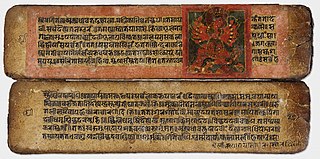
Irwin Allen Ginsberg was an American poet and writer. As a student at Columbia University in the 1940s, he began friendships with William S. Burroughs and Jack Kerouac, forming the core of the Beat Generation. He vigorously opposed militarism, economic materialism, and sexual repression, and he embodied various aspects of this counterculture with his views on drugs, sex, multiculturalism, hostility to bureaucracy, and openness to Eastern religions.

Gary Snyder is an American man of letters. Perhaps best known as a poet, he is also an essayist, lecturer, and environmental activist with anarchoprimitivist leanings. He has been described as the "poet laureate of Deep Ecology". Snyder is a winner of a Pulitzer Prize for Poetry and the American Book Award. His work, in his various roles, reflects an immersion in both Buddhist spirituality and nature. He has translated literature into English from ancient Chinese and modern Japanese. For many years, Snyder was an academic at the University of California, Davis and for a time served as a member of the California Arts Council.

The Kama Sutra is an ancient Indian Sanskrit text on sexuality, eroticism and emotional fulfillment in life. Attributed to Vātsyāyana, the Kama Sutra is neither exclusively nor predominantly a sex manual on sex positions, but rather was written as a guide to the art of living well, the nature of love, finding a life partner, maintaining one's love life, and other aspects pertaining to pleasure-oriented faculties of human life. It is a sutra-genre text with terse aphoristic verses that have survived into the modern era with different bhāṣyas. The text is a mix of prose and anustubh-meter poetry verses. The text acknowledges the Hindu concept of Purusharthas, and lists desire, sexuality, and emotional fulfillment as one of the proper goals of life. Its chapters discuss methods for courtship, training in the arts to be socially engaging, finding a partner, flirting, maintaining power in a married life, when and how to commit adultery, sexual positions, and other topics. The majority of the book is about the philosophy and theory of love, what triggers desire, what sustains it, and how and when it is good or bad.
The Beat Generation was a literary movement started by a group of authors whose work explored and influenced American culture and politics in the post-war era. The bulk of their work was published and popularized by Silent Generationers in the 1950s. The central elements of Beat culture are the rejection of standard narrative values, making a spiritual quest, the exploration of American and Eastern religions, the rejection of economic materialism, explicit portrayals of the human condition, experimentation with psychedelic drugs, and sexual liberation and exploration.

"Howl", also known as "Howl for Carl Solomon", is a poem written by Allen Ginsberg in 1954–1955 and published in his 1956 collection Howl and Other Poems. The poem is dedicated to Carl Solomon.

Kenji Miyazawa was a Japanese novelist and poet of children's literature from Hanamaki, Iwate, in the late Taishō and early Shōwa periods. He was also known as an agricultural science teacher, a vegetarian, cellist, devout Buddhist, and utopian social activist.

Burton Dewitt Watson was an American sinologist, translator, and writer known for his English translations of Chinese and Japanese literature. Watson's translations received many awards, including the Gold Medal Award of the Translation Center at Columbia University in 1979, the PEN Translation Prize in 1982 for his translation with Hiroaki Sato of From the Country of Eight Islands: An Anthology of Japanese Poetry, and again in 1995 for Selected Poems of Su Tung-p'o. In 2015, at age 88, Watson was awarded the PEN/Ralph Manheim Medal for Translation for his long and prolific translation career.

Smokey Bear is an American campaign and advertising icon of the U.S. Forest Service. In the Wildfire Prevention Campaign, which is the longest-running public service announcement campaign in United States history, the Ad Council, the United States Forest Service (USFS), and the National Association of State Foresters (NASF), in partnership with creative agency FCB, employ Smokey Bear to educate the public about the dangers of unplanned human-caused wildfires.

Acala or Achala, also known as Acalanātha or Āryācalanātha, is a wrathful deity and dharmapala prominent in Vajrayana Buddhism and East Asian Buddhism.

Sanskrit literature(Sanskrit: संस्कृत साहित्य) broadly comprises all literature in the Sanskrit language. This includes texts composed in the earliest attested descendant of the Proto-Indo-Aryan language known as Vedic Sanskrit, texts in Classical Sanskrit as well as some mixed and non-standard forms of Sanskrit. Literature in the older language begins with the composition of the Ṛg·veda between about 1500 and 1000 BCE, followed by other Vedic works right up to the time of the grammarian Pāṇini around 6th or 4th century BCE.

Philip Glenn Whalen was an American poet, Zen Buddhist, and a key figure in the San Francisco Renaissance and close to the Beat generation.
Tolkāppiyam, also romanised as Tholkaappiyam, is the most ancient extant Tamil grammar text and the oldest extant long work of Tamil literature. The surviving manuscripts of the Tolkappiyam consists of three books (atikaram), each with nine chapters (iyal), with a cumulative total of 1,610 (483+463+664) sutras in the nūṛpā meter. It is a comprehensive text on grammar, and includes sutras on orthography, phonology, etymology, morphology, semantics, prosody, sentence structure and the significance of context in language.

Hanshan is a Chinese Buddhist and Taoist figure associated with a collection of poems from the Chinese Tang Dynasty in the Taoist and Chan tradition. No one knows who he was, when he lived and died, or whether he actually existed. In the Chinese Buddhist tradition, Hanshan and his sidekick Shide are honored as emanations of the bodhisattvas Mañjuśrī and Samantabhadra, respectively. In Japanese and Chinese paintings, Hanshan is often depicted together with Shide or with Fenggan, another monk with legendary attributes.

New Directions Publishing Corp. is an independent book publishing company that was founded in 1936 by James Laughlin and incorporated in 1964. Its offices are located at 80 Eighth Avenue in New York City.

Howl and Other Poems is a collection of poetry by Allen Ginsberg published November 1, 1956. It contains Ginsberg's most famous poem, "Howl", which is considered to be one of the principal works of the Beat Generation as well as "A Supermarket in California", "Transcription of Organ Music", "Sunflower Sutra", "America", "In the Baggage Room at Greyhound", and some of his earlier works. For printing the collection, the publisher Lawrence Ferlinghetti, another well-known poet, was arrested and charged with obscenity. On October 3, 1957, Judge Clayton W. Horn found Ferlinghetti not guilty of the obscenity charge, and 5,000 more copies of the text were printed to meet the public demand, which had risen in response to the publicity surrounding the trial. "Howl and Other Poems" contains two of the most well-known poems from the Beat Generation, "Howl" and "A Supermarket in California", which have been reprinted in other collections, including the Norton Anthology of American Literature.

Turtle Island is a book of poems and essays written by Gary Snyder and published by New Directions in 1974. Within it, Snyder expresses his vision for humans to live in harmony with the earth and all its creatures. The book was awarded the Pulitzer Prize for Poetry in 1975. "Turtle Island" is a name for the continent of North America used by many Native American tribes.
A haiku in English is an English-language poem written in the Japanese poetry style known as haiku. The degree to which haiku in English resemble classic Japanese haiku varies, but many of these poems draw on short, concise wording and a reference to the seasons.

Mongol literature has been greatly influenced by its nomadic oral traditions. The "three peaks" of Mongol literature, The Secret History of the Mongols, Epic of King Gesar and Epic of Jangar, all reflect the age-long tradition of heroic epics on the Eurasian Steppe. Mongol literature has also been a reflection of the society of the given time, its level of political, economic and social development as well as leading intellectual trends.
A subhashita is a literary genre of Sanskrit epigrammatic poems and their message is an aphorism, maxim, advice, fact, truth, lesson or riddle. Su in Sanskrit means good; bhashita means spoken; which together literally means well spoken or eloquent saying.

The Smokey Bear Show is an American-Japanese animated television series that aired on ABC's Saturday morning schedule, produced by Rankin/Bass Productions. The show features Smokey Bear, the icon of the United States Forest Service, who was well known for his 1947 slogan, "Remember... only YOU can prevent forest fires". It aired for one season of 17 episodes starting on September 6, 1969, and then aired in reruns for the 1970–1971 season.














